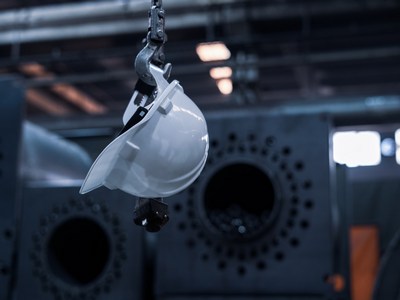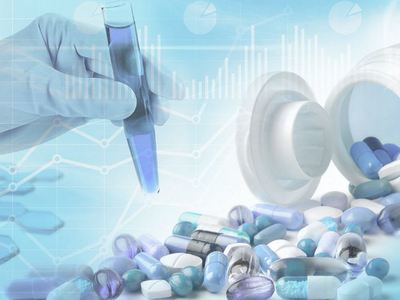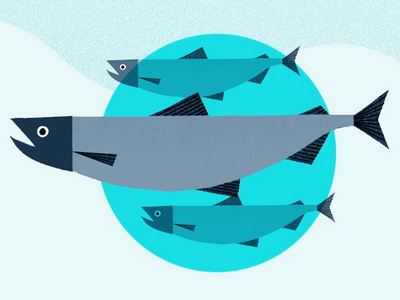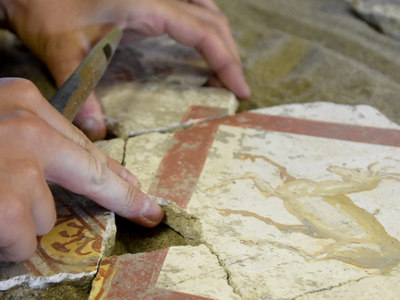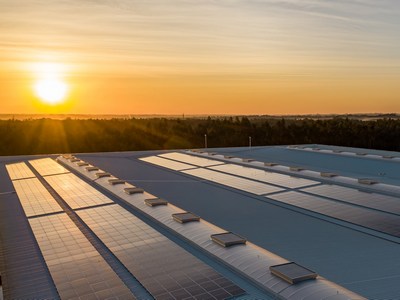Ca' Foscari researchers take part in a number of strategic projects of relevance.
This section presents all on-going projects related to Ca' Foscari's Global Challenges. To discover the past projects, please visit the Archive.
Deindustrialization and the Politics of Our Time
Brexit, the election of Donald Trump as US President, and the rise of right-wing populism in Europe have refocused attention on deindustrialized working-class communities, positioning them as central to an understanding of the times we live in. While the political revolt in deindustrialised places is often understood as a phenomenon that crosses borders, there is still very little transnational comparative research on deindustrialisation and its legacies. Moreover, the significance of deindustrialisation has often been framed by over-simplified or stigmatising media narratives about post-industrial places. These are long-term processes, so to understand them we need the deeper temporal perspective that historical research can offer. The overall goal of this reseacrh project is to understand deindustrialization's "half-life" in transnational and comparative perspective, its causes, the responses to it, its effects, and its legacies. The project forges connections between the leading researchers and partners in deindustrialization studies across six countries, a transnational community of practice, as well as a space where the next generation of deindustrialization researchers is nurtured and connected across borders.
Researcher: Gilda Zazzara
REBALANCE - Reframing the mutual influence among large companies and democracies
While globalization, financialization and monopolies increasingly weaken democracies, large companies are having an ever-greater influence on how democracy is enacted in Europe, leading to a "market-conforming capitalism". Firms are eluding regulation, lobbying for their own rather than citizens’ interest, abusing human rights and push the abused to withdraw from democratic processes, fuelling populism. Some economic actors are experimenting with alternative models and demonstrating more interest in sustainability and tentative routes toward an alternative "democracy-conforming capitalism". In this debate, the application of political-science lenses has black-boxed large companies, while the viewpoint of management scholars has usually considered firms’ economic gains rather than impact on society and democracy. This has left a gap in our understanding of the mutual influence among large companies and democracies. The REBALANCE project (Reframing disruptivE Business of multinAtional corporation and gLobal value chAins within democratic and iNClusive citizenship processes) will fill this gap by investigating how large companies (1) have contributed to past and present threats to democracy; (2) can promote future democracy-enhancing business models and alternative organizational forms.
Project website / EU Cordis database
Researcher: Francesco Zirpoli
Duration: 01/10/2022 - 30/09/2025
Funding: Horizon Europe - Culture, creativity and inclusive society
MODERATE: Marketable Open Data Solutions for Optimized Building-Related Energy Services
MODERATE will formalize a set of procedures and techniques that enable building owners, policymakers, facility managers, utility companies, etc. to openly share their data, gain insights, and make decisions while complying with regulations such as the General Data Protection Regulation (GDPR). Moreover, MODERATE will enable uniform access to heterogeneous data sources on buildings' performance, usually dispersed in several non-interoperable data silos. MODERATE will develop an open platform, embracing leading-edge technologies, such as artificial intelligence (AI), machine learning (ML), blockchain/distributed ledger technologies, the internet of things (IoT), and many more. This platform will enable its users to analyze real-time building data from various building systems and provide insight into the many dimensions of a building's performance. The use of synthetic data generation techniques, not yet widely applied in the construction industry, is one of the elements that allow open data sharing, enabling more reliable services and generating business opportunities.
Project website / EU Cordis database
Researcher: Wilmer Pasut
Duration: 01/06/2022 - 31/05/2026
Funding: Horizon Europe - Climate, Energy and Mobility
PollinAction - Actions for boosting pollination in rural and urban areas
The objective of the LIFE funded project PollinAction is to mitigate the pollination crisis by creating a green infrastructure (GI) network, made up of natural and semi-natural areas, in rural and urban landscapes in North-East Italy. This will involve habitat restoration and the implementation of nature-based solutions. The project is mainly aimed at converting arable crops and rural or urban marginal areas into key habitats for pollinators. To reach this objective, it will improve species-poor grasslands and landscape heterogeneity by creating connectivity among rural and urban areas as well as along road infrastructure and riverbanks. LIFE PollinAction will assess the ecosystem conditions and services and will implement payments for ecosystem services (PES) schemes. The definition of an urban planning of compensation measures at local scale will be also considered as well as the design of circular economy processes and close-to-market solutions to boost farmer competitiveness. The project will be replicated in a marginalised and abandoned area in the Aragon region of Spain. This will allow the effectiveness of GI to be evaluated in two areas with opposite dynamics (i.e. specialisation/intensification vs. marginalisation/abandonment).
Project website / EU LIFE Public database
Researcher: Gabriella Buffa
Duration: 01/09/2020 - 31/03/2025
Funding: LIFE
Optimised personalised drug therapies for renal pathologies in type II diabetes
Diseases, co-morbidities, and patients responses to certain therapies are the result of a complicated interplay of numerous factors. The relationships defining how this intricate network of inputs leads to various outputs is extremely difficult to derive using conventional means. Thanks to Big Data, high-level applied mathematics and computers, the EU-funded DC-Ren project (Drug combinations for rewriting trajectories of renal pathologies in type II diabetes) is developing a tool that will take all this and more into account, and enable optimised personalised drug therapies for significantly enhanced outcomes. The team is focusing on diabetic kidney disease, a common co-morbidity of type 2 diabetes often accompanied by cardiovascular disease. Currently, the drug cocktails targeting it produce highly varied responses. Thanks to its vast patient database, advanced experimental techniques and dynamical systems theory, DC-ren is developing a completely new and widely applicable computational framework for decision support.
Website
Researcher: Debora Slanzi
Duration: 01/01/2020 - 31/12/2024
NewTechAqua: A sustainable, resilient and innovative European aquaculture
"NewTechAqua - New Technologies, Tools and Strategies for a Sustainable, Resilient and Innovative European Aquaculture" intends to expand and diversify EU production of finfish, molluscs and microalgae by developing and validating technologically advanced, resilient and sustainable new solutions. The organizational approach of NewTechAqua is to group the solutions in 6 different categories: feed, Industry 4.0, sustainable farming, genetics, new species and new products. They are validated on conventional (Atlantic salmon, rainbow trout, seabass and seabream) and emerging (greater amberjack, meagre, Senegalese sole and grey mullet) finfish species, molluscs (Pacific oyster, mussel) and microalgae.
Project website / EU Cordis database
Researcher: Roberto Pastres
Duration: 01/01/2020 - 31/12/2023
Funding: Horizon 2020 Societal Challenges - Food security, sustainable agriculture and forestry, marine, maritime and inland water research, and the bioeconomy
Reconstructing the Past: Artificial Intelligence and Robotics meet Cultural Heritage (RePAIR)
The main goal of the RePAIR project is to develop innovative technology to virtually eliminate one of the most laborious and frustrating steps in archaeological research, namely the physical reconstruction of shattered artefacts. In fact, countless vases, amphorae, frescoes and other ancient artifacts, around the world, have not survived intact and have been extracted from excavation sites as large collections of fragments, many of which are damaged, worn out or entirely missing.
Project website / EU Cordis database
Researcher: Marcello Pelillo
Duration: 01/06/2021 - 31/12/2024
Funding: Horizon 2020 Excellent Science - Future and Emerging Technologies (FET)
ISEED - Inclusive Science and European Democracies
ISEED - Inclusive Science and European Democracies is an international research project funded by the European Union’s Horizon 2020 Research and Innovation Programme (2021-2024). ISEED responds to the EU's call for supporting inclusive, innovative and reflective societies in Europe, specifically by "Developing deliberative and participatory democracies through experimentation". ISEED, coordinated by Ca’ Foscari University of Venice, joins researchers from Italy, France, Poland, Norway, Denmark, Ireland, Spain, Bulgaria, Uruguay and the United Kingdom for the 3 years to learn lessons from citizen science engagement projects in order to understand how to involve citizens in democratic deliberation.
Project website / EU Cordis database
Researcher: Eleonora Montuschi
Duration: 01/02/2021 - 31/01/2024
Funding: Horizon 2020 Societal Challenges - Europe In A Changing World - Inclusive, Innovative And Reflective Societies
SunShine - Safe by Design Strategies for High Performance Multi-component Nanomaterials
SUNSHINE is an industry-oriented project, where leading research and technology organisations will cooperate with SMEs and large industries to develop and implement simple, robust, and cost-effective Safe and Sustainable by Design (SSbD) strategies for materials and products incorporating advanced multi-component nanomaterials. To this end, the project will establish a user-friendly e-infrastructure to foster dialogue, collaboration, and information exchange between actors along entire product supply chains. The SSbD strategies will modify products and processes involving advanced multi-component nanomaterials in order to reduce their potential for release or hazard potency. The goal is to develop technologies that are safe and sustainable, but also retain the desired functionality for their intended uses. In addition to promoting safe and sustainable innovation, SUNSHINE will facilitate a two-way dialogue between innovators and regulators, which can help to raise awareness and address regulatory concerns in the early stages of innovation. Ideally, this can shorten the time of novel nanotechnology products to reach the market.
Project website / EU Cordis database
Researcher: Antonio Marcomini
Duration: 01/01/2021 - 31/12/2024
Funding: Horizon 2020 Industrial Leadership: Leadership in enabling and industrial technologies - Advanced materials

